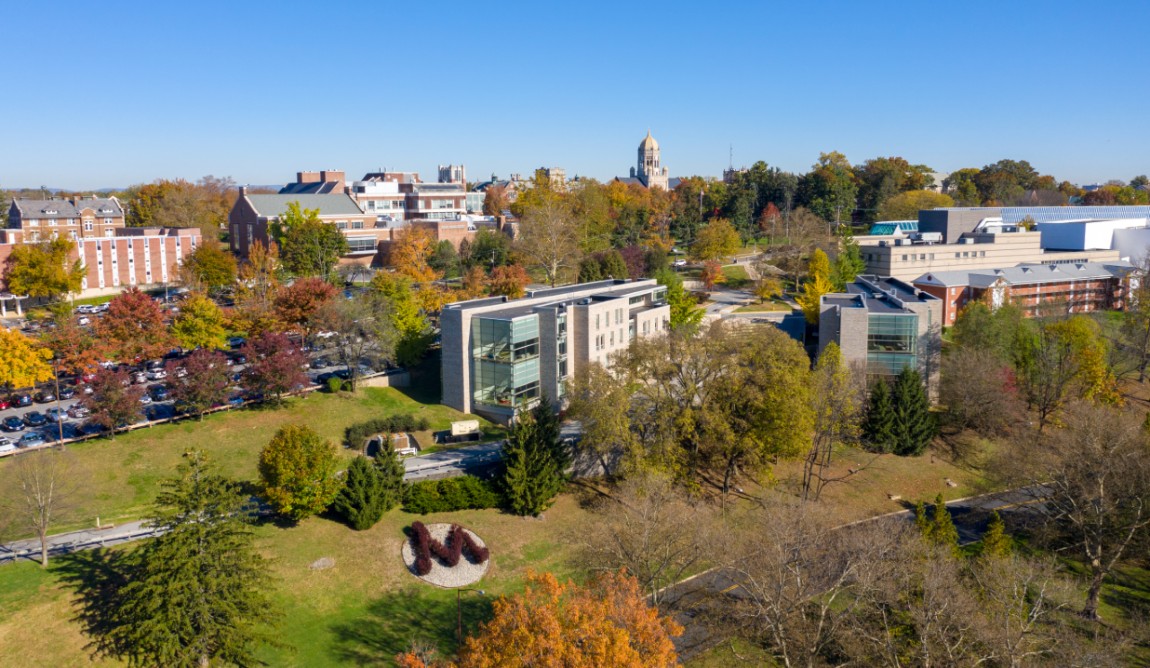Grounds & Biodiversity
Grounds & Biodiversity

We manage our grounds to educate our community, support biodiversity, connect to nature and use the land entrusted to us wisely.
Plant Operations and Groundskeeping
The College has invested in a fleet of 14 electric vehicles, as well as a solar lawnmower and solar leaf blowers. Muhlenberg is committed to replacing vehicles with ones that reduce our carbon footprint.
We have invested in a sustainable ice melt to replace traditional rock salt. This protects the Cedar Creek and Jordan Creek watersheds by reducing salt additions.
Integrated Pest Management
We thoughtfully and intentionally manage pests to minimize or remove the use of pesticides on campus.
-230x118.jpg) Tree Campus USA
Tree Campus USA
The College has earned recognition as a 2019 Tree Campus USA®. Tree Campus USA, an Arbor Day Foundation program, honors colleges and universities and their leaders for promoting healthy trees and engaging students and staff in the spirit of conservation.
To obtain this distinction, Muhlenberg met the five core standards for effective campus forest management: a tree advisory committee, a campus tree-care plan, dedicated annual expenditures for its campus tree program, an Arbor Day observance and student service-learning project.
Field Research Sites
Muhlenberg is home to two significant natural areas, the Graver Arboretum and the Conrad W. Raker Biological Field Station and Wildlife Sanctuary, which provide opportunities to study land and biological conservation.
Graver Arboretum, a beautiful 63-acre area donated by Dr. Lee and Virginia Graver, contains examples of many diverse wildflowers, ferns, rhododendrons and native and rare coniferous trees. The Arboretum provides an ideal outdoor space for course activities and hiking. The Graver Arboretum serves the educational mission of the college by providing outdoor space for course activities. Field experiences at the arboretum take students out of the classroom into an environment where they can ask questions, conduct field research and experience beauty and wonder. Others enjoy the arboretum by hiking through the inviting trails or by finding a quiet place to relax and reflect. The Arboretum is managed using extensive conservation planning.
The Conrad W. Raker Biological Field Station and Wildlife Sanctuary is a 40-acre wooded tract situated 15 miles north of the campus, in Germansville, Pennsylvania. It is used primarily by biology classes for field study. A section of Jordan Creek within the preserve provides an added opportunity for aquatic biology studies. Students and staff also conduct research on varied aspects of plant and animal biology.
